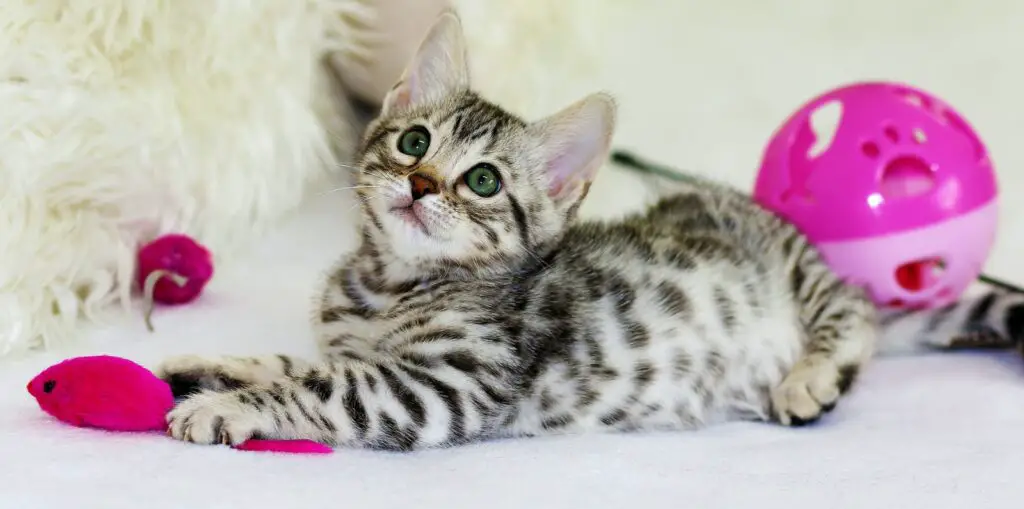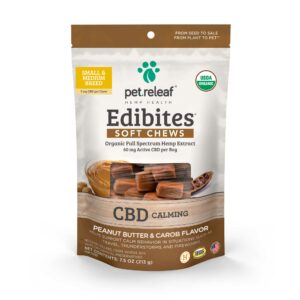
Key points
- Although catnip is usually used in cats, vets often use catnip to treat some medical conditions in dogs;
- While catnip typically has a euphoric effect on felines, it acts as a sedative for canines;
- Magnesium, flavonoids, tannins, vitamins C and E contained in catnip can have a strong positive influence on canine health.
- Anise is another spice that is considered to be the dog equivalent of catnip;
Table of Contents
What Is Catnip?

Let’s start with a bit of botany: catnip or catmint (scientifically known as Nepeta cataria) is a plant in the mint family. Catnip originally comes from southern Europe, Asia, and Africa, i.e., regions with warmer climates, but nowadays, it is grown in backyards all over the world. The plant contains volatile oils, sterols, acids, and tannins. Its scent is tart, and it can be described as a mixture of mint and lemon. For humans, who have a poor sense of smell compared to other animals, catnip is simply a pretty plant with an attractive odor. But for cats, it is a miracle plant that can send them into a frenzy.
How Does Catnip Affect Cats?
Catnip seems to have a strong effect on the vast majority of cats, excluding kittens under 6 months of age. It is believed that this sensitivity to catnip is inherited. The opioid-like effect of catnip on cats is caused by nepetalactone, a potent pheromone essential for cats. Depending on the route of consumption, the plant can have a sedative, anxiety-relieving, or euphoric effect on felines.

Cats typically become calmer after ingesting catnip. Conversely, when felines smell catnip, they begin to behave in a seemingly strange manner: they prance around the plant, rub against it to make its smell even stronger, and generally act hyper. However, the exact behavior varies widely between different animals. Senior cats, for example, do not respond to catnip as strongly as younger ones.
Sometimes, cat owners use catnip to train their furry friends, stimulate their minds, promote physical activity, or reduce anxiety.
What Does Catnip Do To Dogs?
Although catnip is usually used for cats, the plant can be very beneficial to dogs as well. Many canines like catnip, even though it doesn’t have a euphoric effect on them.
Catnip contains a wide range of minerals and vitamins such as magnesium, flavonoids, tannins, and vitamins C and E, which positively influence the dogs’ health. Moreover, essential oils in catnip can help treat your dog’s digestive and gastrointestinal issues, including indigestion, cramps, diarrhea, and flatulence.

Catnip is also believed to have a sedative effect on canines. However, your dog has to eat the plant rather than just smell it to experience this effect. If your dog suffers from anxiety, catnip can help alleviate the condition. Also, if your dog experiences stress when you take it on a trip or leave it home alone, consider giving your pup catnip to calm it down. Just crush some dried catnip leaves and add them to the dog’s meal.
If you want to try giving your dog catnip for the first time, it’s best to consult your vet regarding the appropriate dose. You should also be aware that the effect of the plant might be unpredictable: while it is calming for most dogs, it makes other dogs nervous and hyperactive.
Can I Give Catnip Toys To My Dog?

Keep in mind that catnip toys are designed for cats. Therefore, they are usually too small to be used by dogs. Your pup can try to swallow the toy and choke on it. Even if your dog swallowed a catnip toy without choking, there is still a risk that the pet may develop an intestinal blockage. The toy might become stuck somewhere while moving through your pet’s digestive system. Sometimes, surgery may be required to treat such blockage. So, if you have both a cat and a dog living in the house, try to choose toys that are suitable for all pets.
How To Give Your Dog Catnip?
Generally, to take full advantage of catnip for dogs, pet owners sprinkle 1/8 to 1/2 teaspoon of dried catnip on a dog’s meal. You can also put a few fresh catnip leaves in the pet’s drinking water. However, you shouldn’t give catnip to your furry friend daily. The plant is non-toxic to dogs only when used moderately. Also, some pups have medical conditions that can be worsened by catnip. Therefore, catnip is not suitable for all dogs, and your vet might offer you other supplements as an alternative.
What Is The Dog Version Of Catnip?
One of the dog equivalents of catnip is anise. Anise (Pimpinella anisum) is an ancient medicinal and aromatic plant. It is mainly grown in the Mediterranean region. The sweet-smelling plant has small white flowers that form tiny seeds. Anise seeds taste and smell spicy, tart, and sweetly aromatic, and the smell is slightly similar to that of licorice.

Anise seeds are rich in fat and protein. The effect of anise on dogs is caused by an organic compound called anethole. If your dog occasionally suffers from slight digestive problems or minor cough, anise can help support the pet’s health and speed up its recovery.
Here are some canine health conditions that anise can help alleviate:
- Respiratory diseases
- Cough
- Digestive problems (anise has an antispasmodic effect, and it also stimulates the glands of the gastrointestinal tract)
- Flatulence
Sometimes, anise is used as a home remedy for pets that experience loss of appetite and have difficulty falling asleep. It can also have an intoxicating effect on dogs that’s similar to catnip’s effect on cats.
Anise Side Effects For Dogs
Anis is generally safe for your dog. However, the ASPCA emphasizes that you should only give your four-legged friend small amounts of aniseed. It is essential to always follow the manufacturer’s feeding instructions. Excessive amounts of anise can irritate the dog’s gastrointestinal tract, causing indigestion and diarrhea. Also, if your dog ingests too much anise, it can put pressure on its nervous system. The fragrant spice can also cause an allergic reaction in your pet, although these instances are rare.
Where to buy anise for my dog?

Generally, you can find anise in any local pet store. There are plenty of recipes that use anise on the internet, so you can just buy anise seeds and mix them into homemade treats for your dog.
FAQ
Does catnip calm dogs down?
Catnip is believed to have a sedative effect on dogs. If your pet experiences bouts of anxiety whenever you take it to the vet or groomer, try putting a few fresh catnip leaves in its drinking water ahead of the visit
Can catnip make dogs throw up?
Generally, catnip is considered to be non-toxic for dogs, and it won’t make your dog throw up until the pet consumes excessive amounts of catnip. You should consult a vet to figure out the appropriate dose of catnip for your dog.
Is there catnip for dogs?
Anise is the “catnip” equivalent for dogs. It can be very helpful in treating your dog’s digestive and respiratory problems. Anise can also help if your dog experiences a loss of appetite and has difficulty falling asleep.
Does catnip calm cats down?
Catnip can dramatically change cat behavior. Generally, it makes cats more playful. However, after a certain amount of time (usually 10-20 minutes), the plant starts to have a calming effect on felines, making them relaxed and sleepy.
What does catnip smell like?
Since catnip belongs to the mint family, it has a strong menthol scent with hints of lemon. Its smell has a euphoric effect on cats.




